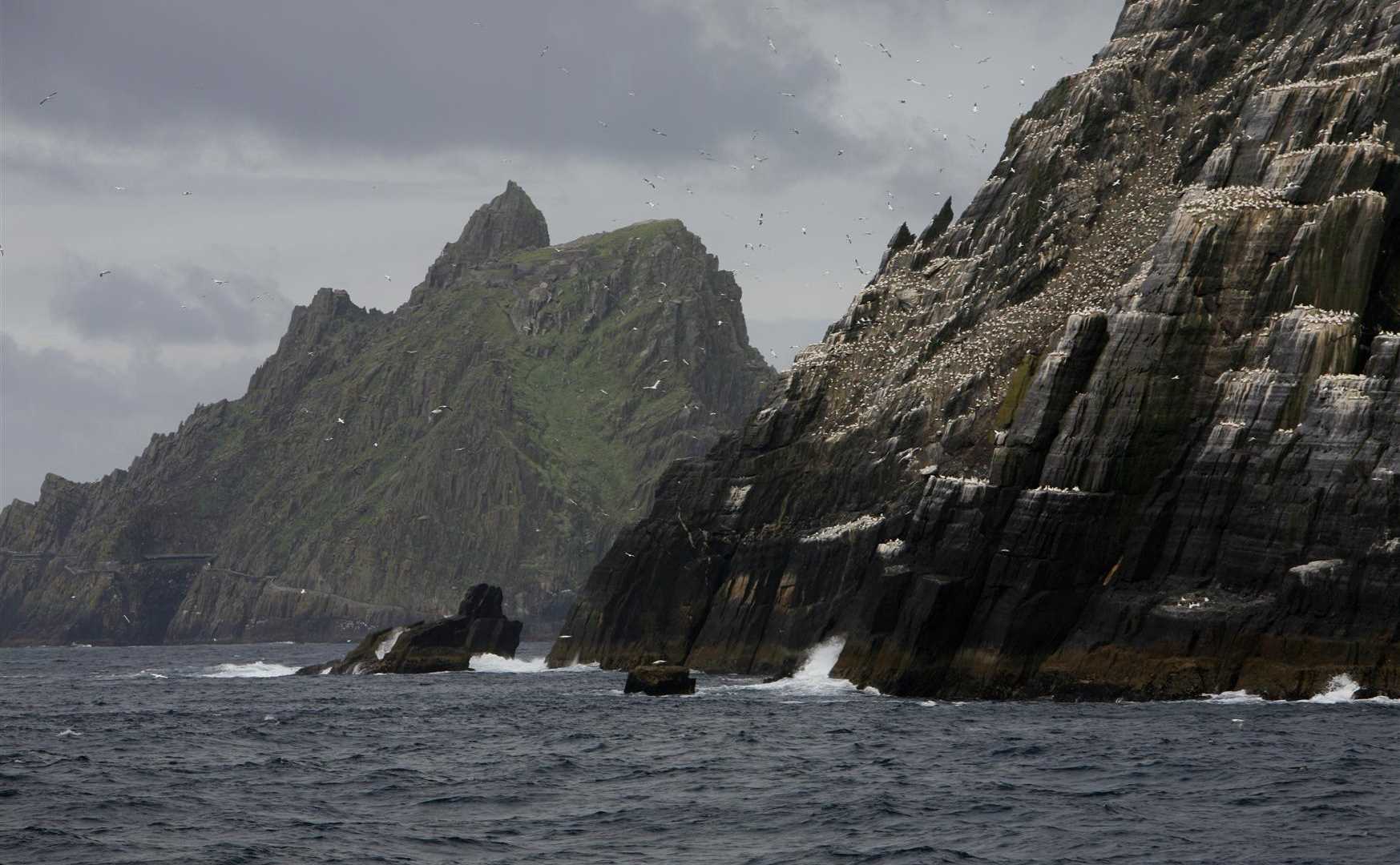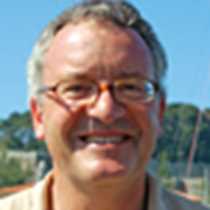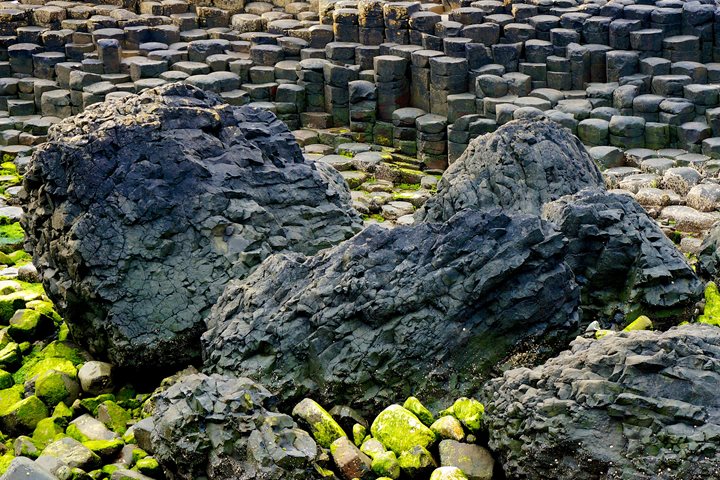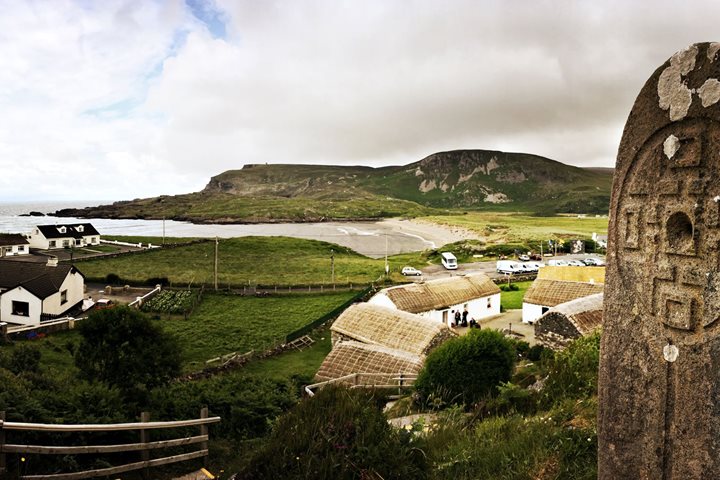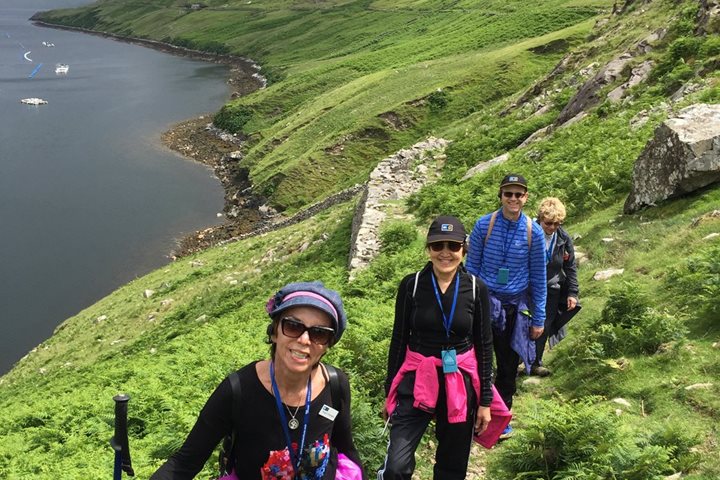Before breakfast guests were out on deck in fine conditions as we approached the spectacular rocky outcrops of the Greater and Lesser Skellig off Ireland's Atlantic coast. The Lesser Skellig is one of Europe's largest gannet colonies and at this time of the year, the height of the breeding season, we were able to witness a magnificent display of gliding, soaring and diving by one of the Atlantic's most impressive seabirds. They dive from a very great height having spotted a fish with eyesight many times more powerful than our own, diving onto their prey accurately using an optical facility that corrects the refraction of the water. Special muscular adaptation of their neck protects their skulls from impact.
The Greater Skellig houses the remains of a Celtic Christian monastery dating from the sixth century. The surviving beehive huts were clearly visible along with a steep ancient stairway. The monastery belongs to a glorious period of Irish history known to historians as the Early Christian Period when the Celtic countries on Europe's Atlantic facade kept the light of Christianity (and the civilization inherited from Rome) alive in Ireland when they were being rapidly extinguished on the continental mainland following the sack of Rome in AD410.
Later in the morning we heard from Dr. Michelle Cronin, a research fellow at University College Cork, concerning her research on the local sea population, a talk that ended as we arrived at a seal colony on a sandy beach on the largest of the Blasket Islands - a perfect photo opportunity. The Blaskets are celebrated in Irish literature for a series of memoirs of a way of life rapidly being lost in the early years of the twentieth century.
After lunch we took Zodiacs in to the lively township of Dingle for a variety of optional excursions, including walks, a scenic tour of the Dingle peninsula and a visit to Antarctic explorer Tom Crean's pub, The South Pole Inn, where we had a most engaging presentation from his biographer Michael Smith.
In the evening we went to the Skellig Bay Hotel for a presentation by Dingle Cookery School and a chance to eat a dinner which they had prepared from local ingredients. Our chef took us back into prehistory to explain Ireland's culinary traditions, bringing up to the present day via the introduction of the New World potato and the vicissitudes of the Great Famine.

